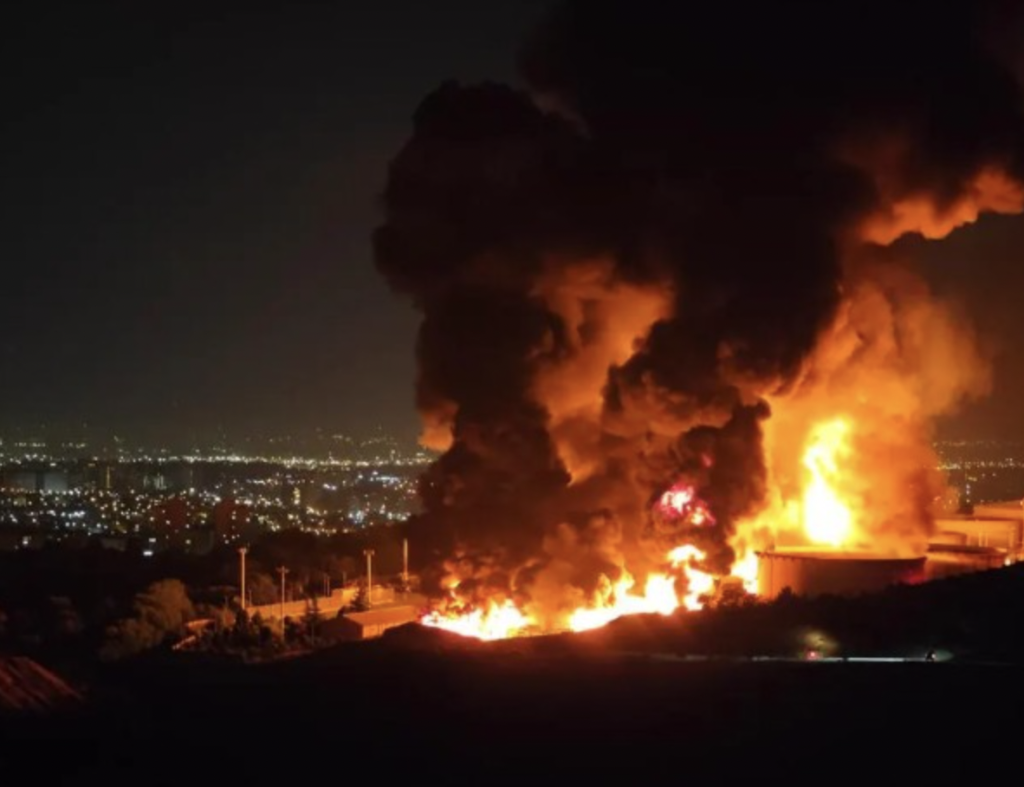
Image: ln24SA
A U.S. military attack on Iranian nuclear facilities has sent shockwaves across the global economy, with analysts and investors warning that the escalation could trigger a volatile knee-jerk reaction when financial markets reopen. Energy prices are expected to spike sharply, while investors flee to traditional safe havens like gold, U.S. treasuries, and the dollar.
Market Fallout Anticipated
Financial experts say the surprise military operation targeting key Iranian nuclear sites in Fordow, Natanz, and Isfahan will almost certainly disrupt oil supply sentiment and stir fears of broader regional conflict.
“Markets hate uncertainty, and this strike adds a new layer of geopolitical risk that investors weren’t pricing in on Friday,” said Carla Mendoza, Global Head of Risk Strategy at Phoenix Capital.
Key concerns:
Oil prices are expected to jump $5–10 per barrel at Monday’s open, possibly breaching $100/barrel if Iranian retaliation includes disrupting shipping lanes in the Strait of Hormuz.
Stock markets could see broad sell-offs, especially in Europe and Asia, as investors react to growing instability in the Middle East.
Safe havens like gold, the U.S. dollar, and government bonds may rally as investors seek protection from risk exposure.
Oil in the Crosshairs
The Middle East supplies more than 30% of the world’s oil, and Iran sits at the heart of that energy corridor. With the U.S. attack potentially provoking an Iranian response, oil tankers transiting through the Strait of Hormuz responsible for roughly one-fifth of global oil flow could be at risk.
“If Iran even threatens to close the Strait, oil futures will explode,” said energy analyst Rafiq Naderi.
Brent crude closed Friday at $92.13 per barrel, and early estimates from futures traders project a Monday morning jump to between $97 and $104, depending on developments.
Investor Behavior: Flight to Safety
Historically, geopolitical escalations involving the U.S. and Middle Eastern nations prompt sharp movements in global capital markets:
Gold is likely to breach $2,500/oz, analysts say, as demand for physical assets grows.
U.S. 10-year Treasury yields may decline as bond prices rise amid heightened risk aversion.
Equity markets, especially in emerging economies, are expected to see short-term outflows.
Ripple Effects on the Global Economy
The strike may:
Undermine fragile post-COVID global growth.
Trigger inflationary pressure due to higher fuel prices.
Create volatility in currency and commodity markets, especially in oil-importing countries like India, Japan, and Germany.
“If this escalates into a broader conflict, central banks will face tough decisions—particularly those already balancing inflation with economic recovery,” said Priya Balakrishnan, senior economist at World Bank Markets Desk.
Get the latests of our Loveworld News from our Johannesburg Stations and News Station South Africa, LN24 International
